Jen Black's Blog, page 31
September 29, 2019
A Downton Binge
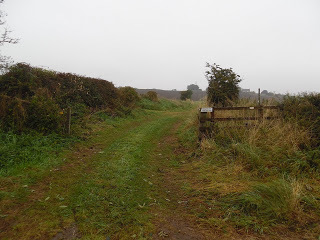 Season of mists indeed.Can't help myself. I've been on a Downton binge lately. Here in the UK we've been watching a re-run of the whole series. I caught up to the fact by the episode where Sybil and Tom confront the family and watched all of it from there on to the very end - which I hadnever seen first time around. Then a friend and I went to see the new film the week it came out. This morning I've decided to purchase the original script as there is no novel version. I'm very much curious about the Edwardian period, so much so that it could feature as the setting for my next historical romance!
Season of mists indeed.Can't help myself. I've been on a Downton binge lately. Here in the UK we've been watching a re-run of the whole series. I caught up to the fact by the episode where Sybil and Tom confront the family and watched all of it from there on to the very end - which I hadnever seen first time around. Then a friend and I went to see the new film the week it came out. This morning I've decided to purchase the original script as there is no novel version. I'm very much curious about the Edwardian period, so much so that it could feature as the setting for my next historical romance!As for the film, I feel it was done because the tv series was so popular. Nothing wrong in that, but there was little of the plot that structured each episode for tv. Every character was given consideration and a chance to play their part, so in that sense, it was good, but added little to their character arc.
Only Barrow had moved on, accepting what he was and making the best of it. It was good to hear Dowager Lady Grantham spouting her acerbic lines again, to see Mary and Edith being less bitchy with each other and Tom finally getting romantically interested again. Seeing how well he dresses it occurred to me that he must have inherited whatever money Sybil had, which gives him the independence he so badly needed. All in all, an enjoyable evening watching characters doing what they do best.
Published on September 29, 2019 04:14
September 21, 2019
How to Write a Best Seller
Back in October 2014, Alison Feeney gleaned the following top tips after talking to Sophie Kinsella. Does this advice still stand, and how well?
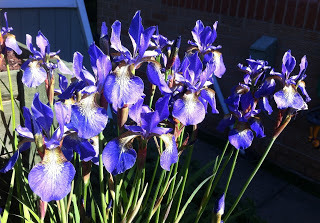
First, she advises carrying a notebook. Jot down anything that catches your interest. It may become your next novel! This should become a habit.Work with “What if” ~ if you can sense the grain of a story, work on it!Read, read, read. It’s vital if you want to be a writerDon’t write to please someone else. Write something that will please you.It’s a bad idea to talk about what you are writing. Writers can be easily put off by a raised eyebrow or a chance remark and lose confidence in their idea. The minute you put your work out there and ask for opinions, it will just get in the way of your creativity.Finding your voice is sometimes the hardest thing. There may be a few false starts, a few steps down an avenue that is not the right one for you but carry on. Let others worry about what genre it is when your story is complete.Every author gets bored with their work, usually around the middle of the book. Everyone reaches a block of some kind – a plot hole or a scene that makes you cringe, but you’ve got to get to the end. The first draft may be rubbish, but it can be improved; a blank page or screen will get you nowhere. For me, going for a walk, with the dog often results in problems disappearing. Change of scene, fresh air, exercise, whatever it is, if it works for you, use it. (Sad to say, but alcohol does nothing for me in this instance!)
Published on September 21, 2019 01:31
September 12, 2019
Author incomes tumble
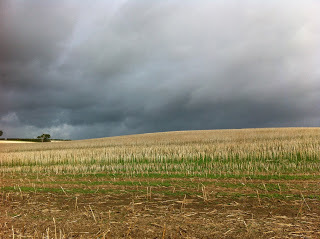 The Authors Guild suggested that Amazon’s dominance is partly responsible for loss of earnings for US authors.
The Authors Guild suggested that Amazon’s dominance is partly responsible for loss of earnings for US authors. Amazon says the findings are flawed.
The report was published in early 2019, but I never saw it at the time, which is why it is interesting now when I have been looking at my own stats. On the whole I made more sales prior to 2014 than I do now. One thing the report does not consider is the vast number of books that are now self-published. One report I read stated over 7,000 a day!
The Authors Guild said the median writing income in 2017 fell 42% from 2009 and pointed out the growing dominance of Amazon as a reason for this. The company now controls 72% of the online book market in the US and keeps costs down and takes a large percentage, plus marketing fees, forcing publishers to pass on their losses to authors.
Amazon disagrees and points out significant differences between the data it compared in its recent survey and years prior, with many of the survey’s conclusions flawed or contradictory. It claims earnings increased almost 17% for traditionally published authors and 89% for self-published authors, and that full-time authors saw their median income rise 13% since 2013.
Read the full report by Alison Flood
Published on September 12, 2019 02:48
Author's income tumbles
 The Authors Guild suggested that Amazon’s dominance is partly responsible for loss of earnings for US authors.
The Authors Guild suggested that Amazon’s dominance is partly responsible for loss of earnings for US authors. Amazon says the findings are flawed.
The report was published in early 2019, but I never saw it at the time, which is why it is interesting now when I have been looking at my own stats. On the whole I made more sales prior to 2014 than I do now. One thing the report does not consider is the vast number of books that are now self-published. One report I read stated over 7,000 a day!
The Authors Guild said the median writing income in 2017 fell 42% from 2009 and pointed out the growing dominance of Amazon as a reason for this. The company now controls 72% of the online book market in the US and keeps costs down and takes a large percentage, plus marketing fees, forcing publishers to pass on their losses to authors.
Amazon disagrees and points out significant differences between the data it compared in its recent survey and years prior, with many of the survey’s conclusions flawed or contradictory. It claims earnings increased almost 17% for traditionally published authors and 89% for self-published authors, and that full-time authors saw their median income rise 13% since 2013.
Read the full report by Alison Flood
Published on September 12, 2019 02:48
September 6, 2019
Are you an Indie?
 Not long ago being an Indie author meant paying to get your books printed and shipped to you, and then selling them, one by one, as best you could in your local area. Waterstones would look down their nose at your slim little volume and local libraries would take one grudgingly, flick through it and say “Oh, but it’s such small print.”Then the ebook and Kindle appeared on the scene and everything changed except the work - the hours, days, weeks and months of research, writing, editing, and re-editing to get a manuscript ready for publication – that hasn’t changed at all.But everything else has and is still changing. An indie author now needs to market and sell their books in a very different way.An ebook can be transmitted, in an instant, anywhere in the world. But to make this work, you must be online, with internet, blog, website, and a working knowledge of social media. You also need to be alert to the constant changes in this world.Never heard of metadata? You need to check this site: an expert at writing metadata. Make sure you know about keywords and categories. Decide if you are sticking with Amazon and ignoring every other selling channel, or if you want to sell through other outlets as well.Then there’s the question of designing a cover yourself or paying someone to do it. Some people believe you must pay for editing not once but twice and sometimes three times. By the time you have paid out all this money, it is doubtful if you will ever get that money back in royalties.
Not long ago being an Indie author meant paying to get your books printed and shipped to you, and then selling them, one by one, as best you could in your local area. Waterstones would look down their nose at your slim little volume and local libraries would take one grudgingly, flick through it and say “Oh, but it’s such small print.”Then the ebook and Kindle appeared on the scene and everything changed except the work - the hours, days, weeks and months of research, writing, editing, and re-editing to get a manuscript ready for publication – that hasn’t changed at all.But everything else has and is still changing. An indie author now needs to market and sell their books in a very different way.An ebook can be transmitted, in an instant, anywhere in the world. But to make this work, you must be online, with internet, blog, website, and a working knowledge of social media. You also need to be alert to the constant changes in this world.Never heard of metadata? You need to check this site: an expert at writing metadata. Make sure you know about keywords and categories. Decide if you are sticking with Amazon and ignoring every other selling channel, or if you want to sell through other outlets as well.Then there’s the question of designing a cover yourself or paying someone to do it. Some people believe you must pay for editing not once but twice and sometimes three times. By the time you have paid out all this money, it is doubtful if you will ever get that money back in royalties.Then there is advertising. Such a tricky business many authors are signing wannabe authors up to expensive courses on how to achieve success with online ads. Teaching people to write has become a college, university and freelance opportunity - and an expensive one at that. How many people can afford £20k for a university course to teach someone to write a novel?
Not I. I'll just soldier on, learning by doing it the hard way. By trial and error. Doing something and seeing if it works. Discarding it if it does not. It keeps me out of trouble. If I were twenty something and craving a career as a successful author, all thee expensive routes might be worth taking, but I'm not, so it isn't. Oh, and by te way, have you noticed I now have an author page? Jen Black's Author page should find me.
Published on September 06, 2019 02:04
September 1, 2019
DG and That man in a Kilt
 Way back in 2000 Diana Gabaldon wrote the following:
Way back in 2000 Diana Gabaldon wrote the following: I have a lot of friends – published and unpublished – who just can’t write without a fully worked-out outline. But there are an equal number who start work with only the roughest of notes, or with no outline at all (me for instance.)
The thing is, writing is the only important thing; it doesn’t matter how you write; nobody can tell, looking at the finished book, whether you had an outline or not, and who cares? If it’s helpful to you, that’s one thing – but sometimes an outline may seem as though it’s holding you back and preventing you from writing at all.
Look – a book is a very organic thing. It grows and changes, as you write it. It doesn’t matter how detailed your outline is, once you’ve started writing, you’ll see things you never thought of, your characters will begin to talk to you (if you’re lucky they’ll take over and tell parts of the story to you), and the whole thing will take on a life of its own. As you work – or after you have a complete entity, at least in rough draft – then you’ll have enough feel for it to make decisions about what to cut, what to keep, what to expand.
I’m not saying this works for everybody, but I started my first novel – for practice, I never meant to show it to anybody – with no outline, no plot, no characters, even; all I had was a time and place, and a vague notion that there should be a man in a kilt.
I just started in where I could sort of see something happening, and wrote. The next day I wrote some more. Then I couldn’t see any more happening there, so I wrote something else that I could see. I kept this, and as I wrote tons of these little pieces, I got a sort of feel for the overall shape of the story, and could start to stick the pieces together and move them around.
I wonder if DG has ever regretted having that man in a kilt peer up at Claire standing in a lighted window?
Published on September 01, 2019 07:50
August 29, 2019
Do you check your stats?
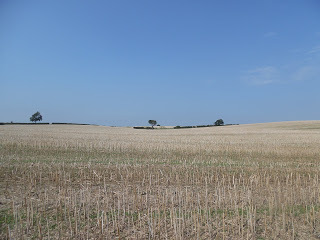 Someone asked me if Banners of Alba was my most popular book and I replied that I didn't know but I would check.Well, I've spent most of the day checking stats on KDP and decided there is not a simple answer though there are strong indications.If I go by number sold, then Far After Gold is my bestseller, followed by Fair Border Bride.If I go by greatest KENP Read then it is The Craigsmuir Affair followed by The Gavington Affair and then Far After Gold.If I check which title I gave away free most then it is Fair Border Bride followed by Shadows.An interesting exercise. My records for some titles go back to 2011 and so there have been many difference in the way Amazon does its counting and payment in the years between then and now. FAG and FBB go back to 2011 and 2012 respectively.Judging by the smell in the air these last two days the local farmers may be muck spreading, so the pristine beauty of the fields may be gone by the time I walk there. These things don't last long - you have to be quick to catch them - thinking of the picture rather than the muck spreading!
Someone asked me if Banners of Alba was my most popular book and I replied that I didn't know but I would check.Well, I've spent most of the day checking stats on KDP and decided there is not a simple answer though there are strong indications.If I go by number sold, then Far After Gold is my bestseller, followed by Fair Border Bride.If I go by greatest KENP Read then it is The Craigsmuir Affair followed by The Gavington Affair and then Far After Gold.If I check which title I gave away free most then it is Fair Border Bride followed by Shadows.An interesting exercise. My records for some titles go back to 2011 and so there have been many difference in the way Amazon does its counting and payment in the years between then and now. FAG and FBB go back to 2011 and 2012 respectively.Judging by the smell in the air these last two days the local farmers may be muck spreading, so the pristine beauty of the fields may be gone by the time I walk there. These things don't last long - you have to be quick to catch them - thinking of the picture rather than the muck spreading!
Published on August 29, 2019 03:08
August 20, 2019
Really, Amazon?
It is claimed that 25.5 million US households bought books in the past month, and fully a quarter of those used Amazon’s Prime Reading, which allows subscribers to borrow 10 items at a time from a vast 1,000 item catalogue.
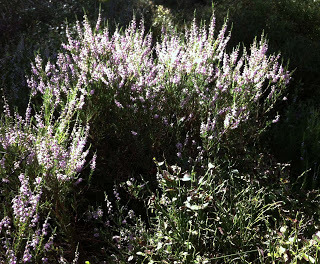 Kindle Unlimited, a similar program, costs an extra $9.99 and offers a wider selection of millions of titles. Amazon First Reads allows members to download a book a month earlier than the unsubscribed public for no extra cost. Often, First Reads are Amazon Publishing titles, and they rocket up the Amazon best-seller charts as soon as they’re made available. Titles topped the charts in early July despite being due out August 1. (I did not know that First Reads exsted!)
Kindle Unlimited, a similar program, costs an extra $9.99 and offers a wider selection of millions of titles. Amazon First Reads allows members to download a book a month earlier than the unsubscribed public for no extra cost. Often, First Reads are Amazon Publishing titles, and they rocket up the Amazon best-seller charts as soon as they’re made available. Titles topped the charts in early July despite being due out August 1. (I did not know that First Reads exsted!)Amazon Publishing puts out 1,100 titles a year, compared with the 1,500 to 2,000 a large publishing house such as Simon & Schuster might publish. Estimating sales for those 1,100 titles is difficult because Amazon keeps the info to itself.
Grace Doyle, an Amazon editor, says the subsidiary looks at three things when measuring the success of a title: the book’s sales, the number of people who read it, and whether the company can expect more books from that author. Her goal was to maintain partnerships with authors for as long as possible, which often results in publishing series, especially for the thrillers and mysteries that do so well with ebook readers.“Amazon readers are voracious readers of genre fiction.” Fans of romances and thrillers race through books quickly.So it’s perhaps unsurprising that Amazon is taking an interest in courting household names. The chart-topping thriller writer Dean Koontz unveiled a five-book deal with Thomas & Mercer in late July.
If you would like to read the lengthy article for the full picture, go to BLAKE MONTGOMERY He is a journalist and fiction writer living in San Francisco. He reports on technology and Silicon Valley for The Daily Beast.
Published on August 20, 2019 03:27
August 15, 2019
Time to get out the red pen
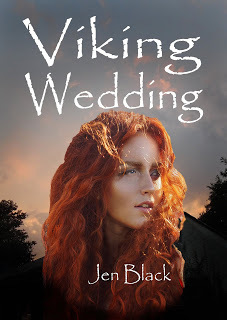 I once read an article on editing by Robert Doran and thought it useful, so I kept it. Right now, it should be a very good reminder for me as I near the last chapters of my wip, so here are his tips:
I once read an article on editing by Robert Doran and thought it useful, so I kept it. Right now, it should be a very good reminder for me as I near the last chapters of my wip, so here are his tips:· Plot: First of all and most important - Does the plot make sense? Is it believable and satisfying?
· Themes: Are there so many that the book lacks focus? Do they interfere with the plot ?
· Characterisation: Are your characters well developed and entertaining?
· Point of view/voice: Am I using too many POVs? Count them! (You may be surprised!)
· Pace: Is the pace pleasing? Does it need jazzing up or slowing down?
· Dialogue: Do your characters sound real when they speak? Do they a- horrors of horrors - all sound the same?
· Flow: Does back story dwarfe the main plot? Is there enough back story for reader understanding? Have I missed any great plot points?
Published on August 15, 2019 12:52
August 9, 2019
Viking Notes
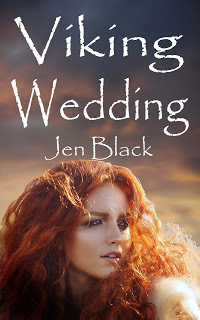 Yesterday I discovered some notes I’d made on Vikings in Scotland, written in 1998 by Donchadh Ó Corráin. I think the Irish scholar is dead now, but I did once get in touch with him via email with a question about Sitric of Dublin and he was kind enough to answer. If nothing else, it shows how long I have been interested in Vikings in the Outer Hebrides and Ireland!
Yesterday I discovered some notes I’d made on Vikings in Scotland, written in 1998 by Donchadh Ó Corráin. I think the Irish scholar is dead now, but I did once get in touch with him via email with a question about Sitric of Dublin and he was kind enough to answer. If nothing else, it shows how long I have been interested in Vikings in the Outer Hebrides and Ireland!Vikings conquered the northern and western isles plus the coastal mainland of Scotland from Caithness via Sutherland to Argyll between c795-c825. By the middle of the period they had set up a kingdom and the name they gave the country was Laithlinn.
At that time Norway had no kings and power did not emerge there until the 11thcentury. Most early raids were based on aristocratic free enterprise with named leaders. Attacks on Ireland were co-ordinated from the middle of the 9thcentury and orchestrated from Laithlinn.
There are various spelllings of the name – Lothlend, Laithlind, Laithlinn and Lochlainn.The Dublin settlement was established in the year 841-42 and the invaders were described as “an assembled host of uncouth, barbarous, berserk, stubborn, treacherous foreigners from Orkney, Shetland, Man, Skye, Lewis, Kintyre and Argyle.”
There was rivalry between the King of Skye, who controlled the Inner Hebrides, and the King of Inis Gall, the Outer Hebrides. The Viking name for the Hebrides was Suðrǿyjar.
Longphoirt – the Viking name for a protective fortress for both men and ships.
Published on August 09, 2019 01:43
Jen Black's Blog
- Jen Black's profile
- 6 followers
Jen Black isn't a Goodreads Author
(yet),
but they
do have a blog,
so here are some recent posts imported from
their feed.



